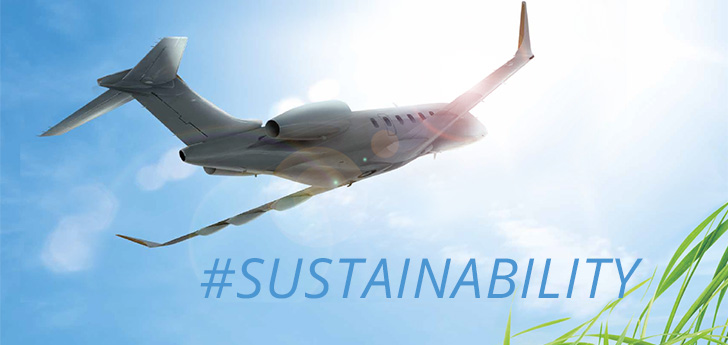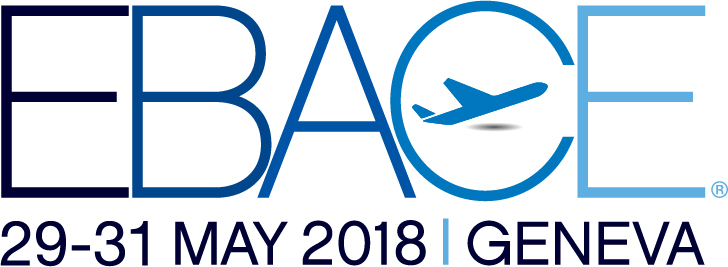In Europe, an Essential Industry Redoubles its Investment in Fuels, and the Future
28 May, 2018
Today, a coalition of international business aviation organizations joined government officials to redouble their focus on advancing the development and adoption of Sustainable Alternative Jet Fuel (SAJF), reflecting the industry’s long-standing commitment to emissions reduction, including, among other aims, carbon neutrality from 2020 forward.
The announcement was made at a media luncheon ahead of the European Business Aviation Convention & Exhibition (EBACE2018), taking place May 29-31 at Geneva’s Palexpo, and Geneva Airport.
At the heart of this initiative is a new product – the “Business Aviation Guide to the Use of Sustainable Alternative Fuel (SAJF)” – focused on raising awareness and adoption of available and emerging sustainable alternative jet-fuel options, and providing a roadmap for the education about, and use of, SAJF.
To download the Business Aviation Guide visit FutureOfSustainableFuel.com.
The guide has been produced by a coalition, which includes the European Business Aviation Association (EBAA), the General Aviation Manufacturers Association (GAMA), the International Business Aviation Council, the National Air Transportation Association (NATA), and the National Business Aviation Association (NBAA). Valuable technical assistance was provided by the Commercial Aviation Alternative Fuels Initiative (CAAFI) and the Air Transport Action Group (ATAG).

The Guide makes three points clear:
1. SAJF for business aviation are safe, approved, and available today, though in limited quantities,
2. The fuels offer myriad benefits, including those in support of the sustainability of business aviation, corporate responsibility and reduced emissions,
3. The fuels are produced from multiple feedstocks, which are sustainable, renewable resources, and are therefore an environmental “win-win.”
“The business aviation community has a long and successful history of innovation when it comes to promoting the policies, products and procedures that reduce the industry’s carbon footprint,” said NBAA President and CEO Ed Bolen. “With this initiative, we underscore our effort on what has always been an important priority.”
“The European Business Aviation Association is very proud to have contributed to this project, which will aim to increase the availability of sustainable alternative jet fuel, directly contributing toward our sector goals, and therefore reducing our overall environmental impact,” said EBAA Chairman Juergen Wiese.
“Our collective effort as an industry, including the publication of the ‘Business Aviation Guide to the Use of SAJF,’ is a key step forward, which will raise awareness and benefit our stakeholders, our environment and our business,” said David Coleal, Chair of the General Aviation Manufacturers Association’s Environment Committee and President, Bombardier Business Aircraft. “This initiative is not only about fuels; it reflects our sector’s overall commitment to climate change. Civil aviation, including the business aviation sector, is the only global industry to have developed clear, concrete and measurable efficiency goals. By expanding the definition of value creation to include environmental and social impact, we are securing returns for years to come, and building a brighter, cleaner future for our next generations.”
“Business aviation has always been an early-adopter of technologies that have improved fuel efficiency and reduced environmental impacts,” stated International Business Aviation Council Director General Kurt H. Edwards. “Sustainable alternative jet fuels are a new technology available now for use by our innovative community. Their growing use will be a critical component of business aviation’s global commitment to mitigate and reduce carbon emissions, and to meet our aspirational goal of carbon-neutral growth from 2020.”
“As sustainable alternative jet fuel is in its introductory stage for general aviation, the National Air Transportation Association believes it is imperative for the industry to continue to work in a collaborative manner, to both educate the aviation community and make its widespread use a reality. If an operator or an FBO is interested in using SAJF, it is important that they contact their fuel supplier,” stated NATA Executive Vice President of Operations & General Counsel Timothy Obitts.
“The general aviation manufacturing industry is proud to partner with the rest of the industry on this important initiative that demonstrates our commitment to achieving the climate-change goals we set for the industry in 2009, and which will ensure we will continue to grow in a sustainable manner. I also want to extend a special thank you to Ms. Fusco from the European Commission for her presence here today, in support of this important sustainability initiative for aviation,” said Pete Bunce, President and CEO of the General Aviation Manufacturers Association.
Follow business aviation’s commitment to alternative fuels on Twitter and Facebook at #Sustainability.


